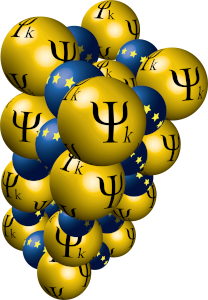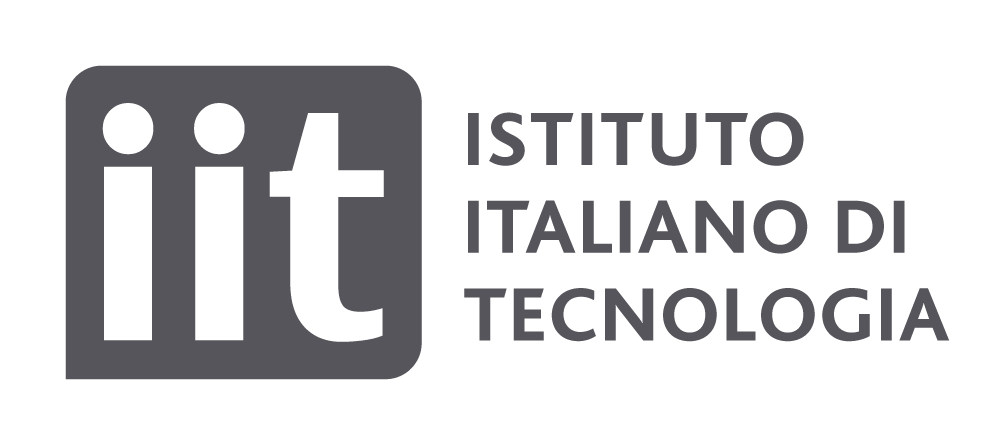 DFT and Models 2021
DFT and Models 2021
June 7-16, 2021, hosted by IIT Genova, Italy
Psi-k School "Bridging first-principles
calculations and effective Hamiltonians"
We thank Psi-k Charity for the support of this activity. The registration is free of charge.
REGISTERED PARTICIPANTS: 243
Primary Psi-k Working Group WG C3: Magnetism and spintronics
Organizers
- Sergey Artyukhin
-
This email address is being protected from spambots. You need JavaScript enabled to view it. - Italian Institute of Technology, Genova, Italy
- Peng Chen
-
This email address is being protected from spambots. You need JavaScript enabled to view it. - University of Arkansas, Fayetteville, USA
Event Schedule
| date\time | Europe | Austin | Beijing | New York | |
| Mon, June 7 | 14:00-15:00 | 7:00-8:00 | 20:00-21:00 | 8:00-9:00 | Roser Valenti, Extraction of low-energy effective spin models from ab-initio and applications |
| 15:00-16:00 | 8:00-9:00 | 21:00-22:00 | 9:00-10:00 | Oswaldo Dieguez, Landau models for epitaxial ferroelectric oxide films from electronic structure calculations | |
| Tue, June 8 | 15:00-16:00 | 8:00-9:00 | 21:00-22:00 | 9:00-10:00 | contributed presentations |
| 16:00-17:00 | 9:00-10:00 | 22:00-23:00 | 10:00-11:00 | Laurent Bellaiche, Model Hamiltonians for ferroelectrics, antiferroelectrics and multiferroics | |
| Wed, June 9 | 14:00-15:00 | 7:00-8:00 | 20:00-21:00 | 8:00-9:00 | Hongjun Xiang, Effective models from DFT: four-state method and beyond |
| 15:00-16:00 | 8:00-9:00 | 21:00-22:00 | 9:00-10:00 | Stefano Sanvito, High-throughput magnetic materials screening | |
| 16:00-17:00 | 9:00-10:00 | 22:00-23:00 | 10:00-11:00 | Changsong Xu, Tutorial on 4-state method in anisotropic magnetic system | |
| Thu, June 10 | 14:00-15:00 | 7:00-8:00 | 20:00-21:00 | 8:00-9:00 | Sergey Streltsov, Orbitals in condensed matter physics: Basics and Recent Progress |
| 15:00-16:00 | 8:00-9:00 | 21:00-22:00 | 9:00-10:00 | Peng Chen, Tutorial on Effective Hamiltonians with LINVARIANT code | 16:00-17:00 | 9:00-10:00 | 22:00-23:00 | 10:00-11:00 | Hongjian Zhao, Understanding noncollinear magnetic structures from symmetry point of view |
| Fri., June 11 | 14:00-15:00 | 7:00-8:00 | 20:00-21:00 | 8:00-9:00 | Eric Bousquet, Non-collinear magnetism from DFT: magnetic interactions and magnetoelectric response |
| 15:00-16:00 | 8:00-9:00 | 21:00-22:00 | 9:00-10:00 | Dominik Juraschek nonlinear phonon dynamics from first principles | |
| 16:00-17:00 | 9:00-10:00 | 22:00-23:00 | 10:00-11:00 | Sobhit Singh, tutorial on pyprocar | |
| Mon., June 14 | 14:00-15:00 | 7:00-8:00 | 20:00-21:00 | 8:00-9:00 | Nicola Marzari Limitations of DFT+U, extended Hubbard |
| 15:00-16:00 | 8:00-9:00 | 21:00-22:00 | 9:00-10:00 | Iurii Timrov, tutorial on extended Hubbard (materials) | |
| 16:00-17:00 | 9:00-10:00 | 22:00-23:00 | 10:00-11:00 | Philippe Ghosez, From first-principles data to predictive second-principles lattice models : the MULTIBINIT initiative | |
| Tue., June 15 | 14:00-15:00 | 7:00-8:00 | 20:00-21:00 | 8:00-9:00 | Ingrid Mertig, Topological properties and transversal transport coefficients |
| 15:00-16:00 | 8:00-9:00 | 21:00-22:00 | 9:00-10:00 | Sergey Nikolaev, The Hubbard model from DFT and its application to quantum materials | |
| 16:00-17:00 | 9:00-10:00 | 22:00-23:00 | 10:00-11:00 | Andrey Leonov, Modelling magnetic skyrmions | |
| Wed, June 16 | 14:00-16:00 | 7:00-9:00 | 20:00-22:00 | 8:00-10:00 | contributed talks: |
| Wed, June 16 | 14:00-14:15 | 7:00-7:15 | 20:00-20:15 | 8:00-8:15 | Ryota Ono, Magnetically induced ferroelectricity in spin-1/2 Ba2CuGe2O7 |
| 14:15-14:30 | 7:15-7:30 | 20:15-20:30 | 8:15-8:30 | Raihan Ahammed, Ultrahigh Out-of-Plane Piezoelectricity Meets Giant Rashba Effect in 2D Janus Monolayers and Bilayers of Group IV Transition Metal Tri-Chalcogenides | |
| 14:30-14:45 | 8:30-8:45 | 21:30-21:45 | 9:30-9:45 | Amit Chauhan, Exploration of Trivial and Non-trivial electronic phases, and Collinear and Non-collinear Magnetic phases in low-spin d5 perovskites | |
| 14:45-15:00 | 8:45-9:00 | 21:45-22:00 | 9:45-10:00 | David O'Regan, The partner of the Hubbard U: interpretation of Hund’s J in DFT+U methods, linear-response calculations for J, and the results to expect | |
| 15:00-15:15 | 8:00-8:15 | 21:00-21:15 | 9:00-9:15 | Louis Ponet, Multiferroic crankshaft in GdMn2O5 | |
| 15:15-15:30 | 8:15-8:30 | 21:15-21:30 | 9:15-9:30 | Xin WANG, Finite-temperature dynamics in cesium lead iodide | |
| 15:30-15:45 | 8:30-8:45 | 21:30-21:45 | 9:30-9:45 | Ramesh Kumar, Topological Phase Transition using External Pressure | |
| 15:45-16:00 | 8:45-9:00 | 21:45-22:00 | 9:45-10:00 | Sujoy Datta, Spin Hall Conduction in Simple 2D Systems | |
| 16:30-17:00 | 9:30-10:00 | 22:30-23:00 | 10:30-11:00 | Sergey Artyukhin, Closing remarks; Peng Chen, Contributed presentation awards |
ABSTRACT AND OBJECTIVES
First-principles calculations (DFT, DMFT) are very successful in describing materials at a unit cell scale. Simplified models have often inspired these approaches and have a great pedagogical value, as well as enable modelling at larger scales, where the performance of functional materials is often defined. For instance, switching of ferroic materials is determined by the dynamics of their complex domain arrangements, and novel electronic and memory devices are being developed using domain walls and skyrmions in non-collinear magnets and multiferroics. Recent developments of Wannier function-based methods, including computation of topological invariants and electoron phonon coupling, as well as density functional perturbation theory approaches for treating gradients of strains and other order parameters, enable the computation of coefficients of complex models. Methods for automatic determination of model parameters from DFT are being developed. Notably Scale-Up allows to automatically generate and simulate an atomistic model representing structural distortions, strains and selected electronic degrees of freedom. Multibinit project aims to bridge Abinit DFT code and atomistic models. L-Invariant uses symmetry to derive a Landau-type model and performs automatic generation of DFT data set, subsequent fitting of the model parameters and Monte-Carlo and phase-field simulations of the models. The proposed school aims to provide the students with the review of important phenomena in solid state physics, modeling approaches, ab-initio methodology and practical sessions that combine first-principles and model calculations on realistic materials. Topic will include elastic and ferroelectric properties, magnetic exchanges, particularly in materials with strong spin-orbit coupling, interactions between (uniform and nonuniform) strains, structural and magnetic order parameters, finite-temperature properties, basics of strongly correlated electrons and electron-phonon interactions.
Event Programme
Magnetic orders
-
Stefano Sanvito
-
Hongjun Xiang
-
Sergey Streltsov
-
Sergey NikolaevThe Hubbard model from DFT and its application to quantum materials
-
Andrey LeonovModelling magnetic skyrmions
Structural orders
-
Nicola MarzariLimitations of DFT+U, extended Hubbard
-
Iurii TimrovTutorial on extended Hubbard (using quantum mobile environment)
-
Philippe GhosezFrom first-principles data to predictive second-principles lattice models : the MULTIBINIT initiative.
-
Dominik Juraschek
-
Ingrid MertigTopological properties and transversal transport coefficients
-
Sobhit Singh